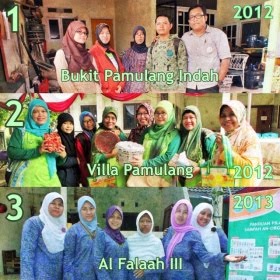
On the other hand, creating a waste management system requires several fundamental changes from the people itself. C ultural Aspect: Many local citizens make a living out of the tourism activities in Gili Trawangan.


The absence of such baselines is what caused North Lombok to not have any budget designated for waste management.ģ. The regulations regarding waste management will be covered by the local regulation (Perda) and North Lombok’s District Regulation, which are still in the development process and not yet issued. These rules and regulations are also not yet performed strictly. Law and Regulations Aspect: The existing programs and regulations in Gili Trawangan are still in the form of an appeal or recommendation, In addition, the price of building materials became much more expensive.Ģ. For instance, the team needs to rent a barge in order to transport the pickup truck to Gili. Real challenges in the process of building infrastructures andįacilities in Gili. Geographical Aspect: Gili Trawangan is a small.Realizing a sustainable waste management system in Gili has its own challenges and obstacles due to several factors, namely: The Challenges that Arise throughout the CSR Program The program was funded by Bank Mandiri’s Mataram branch in Lombok as a part of the efforts to implement sustainable tourism practices in Gili Trawangan. Waste4Change together with Bank Mandiri developed a waste program to support the implementation of waste management system in Gili Trawangan that is based on the 3R Principles. This program was conducted from November 2016 until August 2017. Bank Mandiri’s Bina Lingkungan CSR Program A tourist is estimated to have generated around 3,51 kilograms of waste every single day. This emphasizes the huge “role” that tourists have towards the production of waste in Gili. This data was taken in 2016.Īnother interesting finding is that the waste generated from the commercial sector significantly dominates the total amount of waste as contrasted to the waste that is collected from the residential sector.

Waste Percentage in Gili Trawangan based on the source. Hence the local communities did not segregate their waste because with the current waste collection system, it will almost likely get mixed again. To begin with, the number of segregated waste bins that exist in Gili Trawangan is still very little. The Conventional Collect-Transport-Dispose Method in theĮxisting Waste Management System, which causes the Waste to be In general, there are three main problems relating to waste in Gili, which are: 1.

Evidently, Gili produces an estimated 9 to 20 tons of waste per day. The increasing number of tourists in Gili correlates with the increasing consumption and production activities, which will ultimately lead to a huge amount of waste that is being generated. In addition, the tourists’ growth from both inside and outside the country is around 3,000 to 4,000 people every day. Suggestions submitted were PKM activities in the future to be carried out continuously so that the participants would always get guidance in recording the accounting cycle and provide financial reporting to the public related to the Garbage Bank, so that the community was more enthusiastic in collecting waste because it could provide high economic value.The Gili Trawangan island that is located in Mataram, North Lombok is one of the tourist destinations whose popularity is rising, and can even compete with Bali.īased on the interview conducted by Waste4Change’s team with Gili Eco Trust, the total number of tourists in Gili amounts to 1 million people per year for the past 15 years. The response of the participants was very good and happy because it was very helpful in learning about financial records. The results of the PKM Implementation carried out on 20, 21 and 22 October 2019 were to increase knowledge in the field of accounting, especially regarding the financial records of the participants of the Asri Berseri Garbage Bank Management group in Benda Baru, South Tangerang, Banten. The theme of PKM is financial accounting, by involving lecturers and resource persons Lecturers in the Accounting Study Program from Pamulang University. This community service has a general objective to help partners develop a good waste management system, good and correct accounting reporting, and build a model of the Waste Bank system, which can inform the quantity of waste in each village and the quantity of recycled waste to meet the economic needs of the community.


 0 kommentar(er)
0 kommentar(er)
